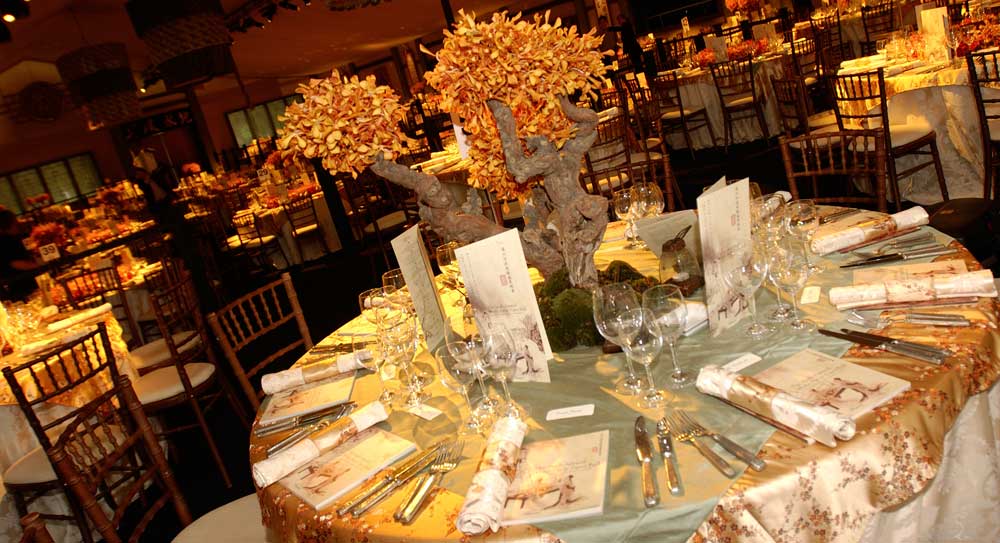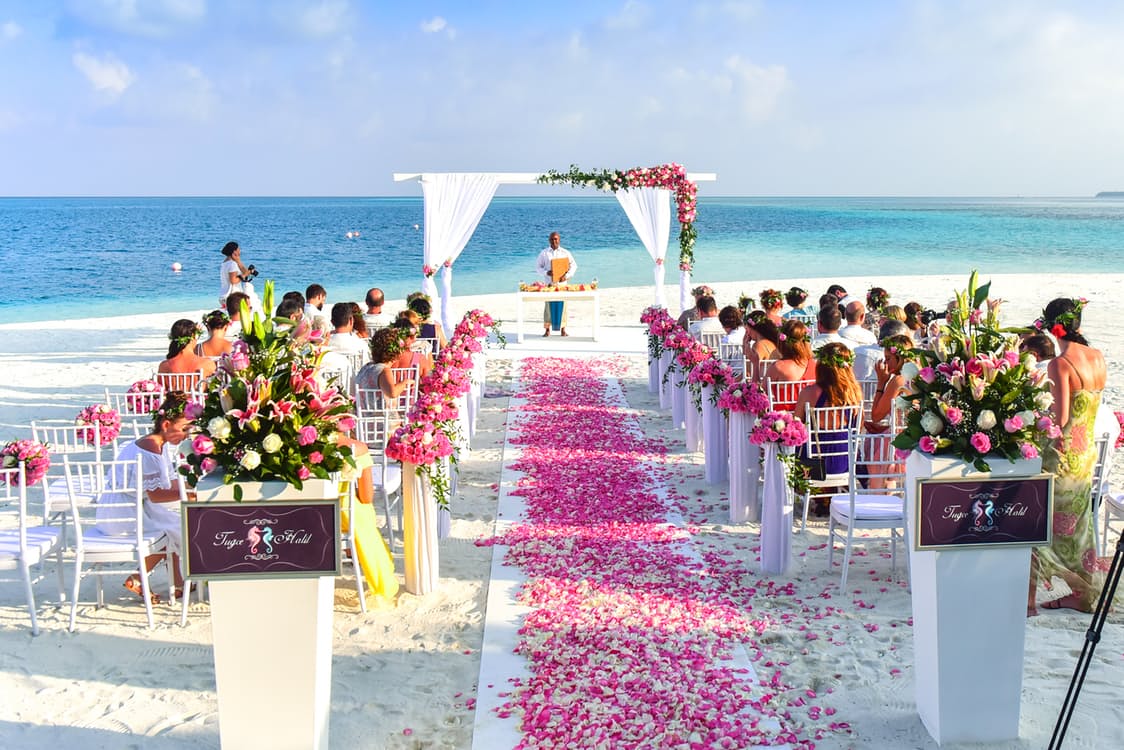In this section we'll look at the different event planning careers and opportunities open to you—with career path advice and information from employers, recruiters, and professional event planners.
We'll cover essential information for planning your event management career, including the different sectors of the event planning industry, how to decide what type of event planner you want to be, the different ways to work as an event planner, the pros and cons of careers in event planning & management, the benefits of being an event planner, what it takes to be an event planner; event planning skills and qualities, and what it is like to be an event planner—with anecdotes and insights from professional event planners.
A party planner? A meeting planner? Conference organizer? Experiential producer? Learn about the different sectors of the events industry and the different types of event planning career opportunities open to you.
In-house event planner? Agency event planner? Freelance event planner? Onsite Event Coordinator? Learn about the different ways you can work as an event planner.
The pros and cons of being an event planner. Is event planning right for you?
Although the work is often anything but glamorous, event planning careers can be both exciting and rewarding. Learn about some of the truly unique and extraordinary benefits of being an event planner.
What is a career in event planning & management like? Professional event planners describe some the most unique, memorable, and rewarding experiences from their event planning careers.
Now that you have a realistic idea of what the job of an event planner really involves, you also need to understand the many different sectors of the events industry—in order to decide which one you want to work in.
In the same way a lawyer might practice in a particular field, such as criminal, corporate, or immigration law, or a doctor might specialize as a gynecologist, neurologist, or plastic surgeon, event planning careers also involve choosing a sector of the industry to work in.
Event planning careers are typically defined by the sector you work in, meaning that, within the industry, you’ll typically be referred to as a meeting planner, a corporate event planner, a conference organizer, a wedding planner, a party planner, or a experiential producer—to name just a few.

Most people tend to think of the events industry as divided into two main camps, corporate events and special events—each of which is dividing into further sub-sectors.
* Nowadays, brand-marketing and experiential events tend to straddle both categories of corporate events and special events.
Traditionally, these were considered corporate events, given that most brands are owned by corporations and the events were used for marketing and publicity, rather than to entertain.
However, as brand-marketing events have evolved into experiential activities—becoming more consumer-oriented and social in nature—with the focus being on providing a customer experience associated with the brand, they often stray into the territory of special events.
In the past, brand-marketing events would have focused on targeting press, buyers, VIP clients, celebrities, opinion formers, and influencers, whereas nowadays—with the introduction of social media—brands reach out directly to everyday consumers with experiential activities that often take the form of special events—such as festivals, one-off concerts, pop-up cafes, and niche sporting events.
To help you get a better understanding of the different types of event planning careers available and what it’s like to work in each sector, the next unit of this website, under the heading ‘Industry’, will examine each sector in more detail and explain:
You’ll also be able to read first-hand accounts by professionals who offer insights into what it’s like to work in each sector.
In the meantime, continue reading this section on how to prepare for your event planning career.
“There are so many different industries and positions that you can explore. My advice would be to follow whatever interests you have and follow your passion. Think through what your passion is. If you love fashion, then target the events that are going on in the fashion industry. If you love sports, find a sports marketing firm. If you love food, find a caterer that you can work for. Every day you’ll work with people and elements that excite you. Event planning is one thing, but you’ll love it even more if you can do it within a field you’re interested in.”
Whichever sector of the industry you choose to work in will ultimately come down to your strengths, interests, personality, and lifestyle.
You need to consider:
Do you envisage yourself planning gala dinners, fundraisers, parties, and celebrations? Large outdoor events, festivals, and experiential activities for well-known brands? or conferences, conventions, and corporate meetings?
Do you want to use your creative and design skills? Or do you excel at project management and logistics?
A formal business environment? A cool creative agency? An intimate two or three person small business?
Is a comfortable salary and benefits important to you? Or are you happy to settle for less money and few or no benefits to work on more creative events?
Are you free to travel a lot and be away from home for lengths of time? Are you prepared to work on lots of weekend events? Or would you prefer to work on events mostly during the week, giving you weekends free?
“There are many different areas of the industry you can use as an entry point. Don’t worry about getting stuck in one area, or starting out in an area you don’t really want to stay in, because you can always transfer and move around.”
If you’re quite a casual, laid back, or spontaneous person, you probably aren’t going to enjoy working in a rigid corporate environment where you have to dress, speak, and behave in a professional and formal manner.
Alternatively, if you’re not someone who likes the pressure of having to come up with creative ideas, original concepts and ‘the next big thing’, but are a whizz at organizing, planning and logistics, then corporate events might suit you better than brand marketing and experiential.
If your idea of creative involves choosing food, décor and entertainment, then special events, parties, and fundraisers is probably going to be a good fit for you.
Whereas if you’re drawn to the type of creative that involves holding flash-mobs in Time Square one week, followed by creating a pop-up skate-board park in a disused car park the next, then experiential will probably be your thing.

If you don’t want to give up your weekends (daytimes and evenings) then party planning, celebrations and weddings won’t be a good fit for you, but corporate events or experiential—where the majority of events are held on weekdays—might.
If a comfortable or higher than average salary with benefits is important to you, then corporate event planning is probably the best fit, as typically most other sectors pay less—sometimes a lot less!
You may want to travel and have the type of home-life that enables you to take off for weeks at a time, in which case incentive travel / meeting planning might suit you.
Fortunately, there are many different types of event planning careers open to you—whatever your strengths, interests, personality, and lifestyle.
You might think at this stage in your career that you already know exactly which sector you want to work in. However, they all have pros and cons attached.
You may discover once you start working in your chosen sector that, although you’re passionate about the work, the pay is not as high as you’d hoped, the environment is too formal, or that job opportunities are scarce.
Alternatively, you might start in a sector that involves a lot of travel, then your personal circumstances change, and you don’t want to be away from home as much.
Whether you think you already know which sector you want to work in, or whether you are looking to explore different options, it’s important to have an overview of the industry as a whole.
This will not only aid your own career choices and development, but will also to demonstrate to potential employers that you understand the entire landscape, where you sit within that, and why you’re a good fit for their particular sector.
Therefore, when you’ve finished reading all the articles in this section, be sure to move on to the unit titled ‘Industry’ in order to get a feel for the pros and cons of each sector.
“Don’t be afraid to start somewhere just to get your feet wet. You’ll learn so much along the way about who you are, what you have to contribute to the industry, and where you want to take your career. Be open to all different types of experiences and thinking of yourself in various roles, not categorizing yourself as solely an operations or a sales person. Most likely, where you start is not where you will end up, and the most seasoned and knowledgeable professionals are those that have been open to learning everything they can from each experience offered. ”
At the beginning of your event-planning career, I think it's a good idea to try to get a little bit of experience in each sector—perhaps in a volunteer or assistant role—so that you can get a feel for what each one is really like. You might think you know what it will entail, but often the idea can be very different from the reality. Once you try it, you might find event planning isn't right for you at all.
Once you've explored a bit, you’ll then need to choose one sector to focus on in order to gain sufficient relevant experience to be able to apply for jobs.
However, choosing a sector to start out in doesn’t mean you have to stay in that sector for your entire career. One of the good things about the events industry being so large and diverse—encompassing multiple sectors and sub-sectors—is that you can either choose to specialize in one, or diversify into others.
Some people will tell you that it’s not easy to switch between different sectors once you’ve established yourself in the industry—and they’re right, it’s not always easy. There can be a tendency to get pigeonholed if the majority of your experience is in one type of event planning.
For example, if you’ve only ever really worked on corporate meetings and conferences, then it might be harder to convince someone to hire you as a special events planner to organize festivals or parties/launch events. But it’s far from impossible, and many people do it.
I myself started my event-planning career in fundraising events for a charity, before joining the corporate events team at the investment bank Credit Suisse where I worked on meetings, conferences, employee events, and corporate hospitality/client entertaining events. I then founded by own special events company and produced parties and celebrations, premieres, product launches, brand experience events, and even celebrity weddings.
“It is possible to cross over from special events to corporate events and vice versa—because the skills are transferable. But what you need to understand is the difference of working in a corporate environment. There is a way you have to dress and speak and behave, and some people struggle with that when they’ve come from an agency. Some people hate it and some people love it. I think it’s healthy to have experience in both. If a candidate’s done both, I snap them up because I know they’ve got all the various skills, they understand how an agency works, they also have a lot of really great skills when it comes to presenting their ideas—as agencies spend a lot of time doing beautiful presentations to actually sell in an idea—and I think some of the those elements are fantastic.”
The truth is, if you have event planning skills and are good at what you do, those skills are transferable to all types of events. It’s just a question of you demonstrating to an employer that you can apply them to different types of events.
Sometimes, employers are actively looking to recruit someone from a different sector of the industry in order to utilize their experience in that area. For example, I remember when my special events agency, Left Field Productions, was looking to hire someone for an operations / logistics role.
Having worked in corporate events for a large investment bank myself, I knew that people from that background are often highly skilled in these areas as a result of organizing large international meetings and conferences. So I deliberately set out to hire someone from a corporate background knowing they would bring certain skills with them.

Similarly, when I went to work for Credit Suisse, I know they hired me because I had experience working on very creative and high-profile fundraising events. They wanted to have someone with my skills as part of their team who could bring something a little different to the traditional corporate events they organized.
The reality, however, is that most event planners usually specialize in just one area of the industry. Not that this is a bad thing. Clearly, the more focused your experience, the more of an expert you become in that area, which makes it easier and quicker to work your way up into senior positions and management roles. It just depends on what you want to get out of your event planning career; do you want to be an expert at one thing, or an all-rounder with experience of many different things?
“Where you begin your career is not going to be where you end up. You may not get the ideal first position, but you’ll gain experience and the opportunity to better assess where you want to be for your next job. Don’t live or die by that first job, in most cases it’s just a stepping stone.”
It’s worth remembering too, that even if you choose to work in one particular sector, that doesn’t mean you’ll only work on one type of event.
A corporate event planner might produce meetings and conferences, gala dinners, award ceremonies, team building activity days, client receptions and parties, corporate hospitality events (at sporting events / opera / ballet / art gallery shows etc), staff holiday parties, and charity days.
Similarly, a meeting planner often has to plan a program of events around the main meeting, which might involve planning evening drinks receptions, gala dinners, award ceremonies, black tie balls, and off-site activities and excursions—which could be anything from helicopter rides, wine tastings, golf tournaments, kayaking, spa days, or whale watching.
A special events planner working at an agency might work on a shop opening and party for Louis Vuitton, a black tie fundraising dinner for The Red Cross, or an outdoor winter festival for the National Hockey League.
An experiential producer working on brand events might find themselves working on a runway show for GAP in Time Square, a touring nightclub roadshow for Smirnoff, or the Reebok CrossFit Championships.
Regardless of the sector you work in, event planning careers typically offer plenty of variety when it comes to the type of events you'll work on
Not only can event planning careers span different sectors of the events industry, there are also several different ways to work as an event planner within each sector; in-house, agency, freelance, permalance, and onsite.